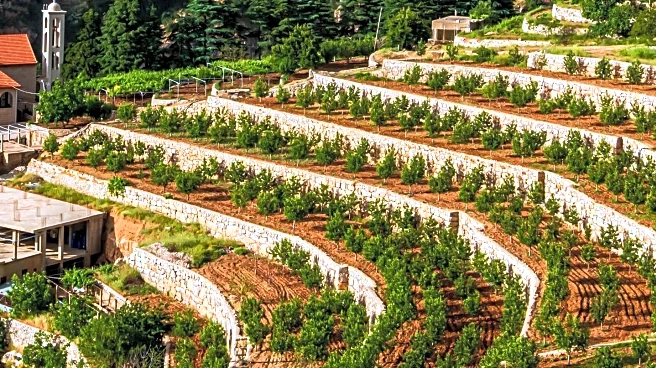What's Happening?
Israeli archaeologists have discovered a 1,600-year-old agricultural estate in Kafr Qasim, central Israel. The site, excavated by the Israel Antiquities Authority, reveals the prosperity of a Samaritan community from the late Roman to Byzantine periods. The estate features mosaic floors, an olive press, and a ritual purification bath, indicating wealth and ritual purity in oil production. Changes in the estate's structure suggest adaptations following Samaritan revolts against Byzantine rule.
Why It's Important?
The discovery provides insight into the historical and cultural dynamics of the Samaritan community, highlighting their resilience and adaptation during periods of political upheaval. It underscores the significance of archaeological efforts in understanding ancient societies and their interactions with ruling powers. The findings contribute to the broader narrative of the region's history, offering a glimpse into the socio-economic conditions and religious practices of the time.










